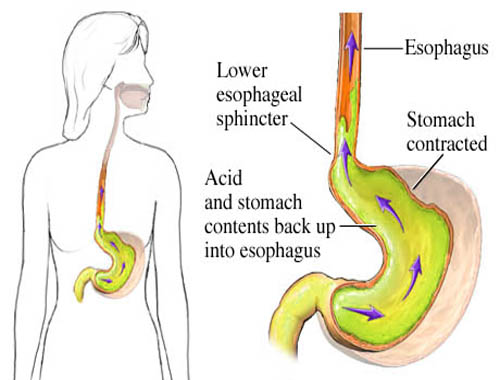Reflux (GERD)
Gastroesophageal reflux disease (GERD) is a chronic digestive disease that occurs when stomach acid or, occasionally, bile flows back (refluxes) into your food pipe (esophagus). The backwash of acid irritates the lining of your esophagus and causes GERD signs and symptoms. Signs and symptoms of GERD include acid reflux and heartburn. Both are common digestive conditions that many people experience from time to time. When these signs and symptoms occur at least twice each week or interfere with your daily life, doctors call this GERD. Most people can manage the discomfort of heartburn with lifestyle changes and over-the-counter medications. But for people with GERD, these remedies may offer only temporary relief. People with GERD may need stronger medications, even surgery, to reduce symptoms. Many of the symptoms experienced by people with GERD and eosinophilic esophagitis overlap. While the symptoms are similar, the treatments are different. The shared symptoms between GERD and eosinophilic esophagitis: nausea; vomiting; abdominal pain; chest pain; difficulty sleeping; The differences between GERD and eosinophilic esophagitis become apparent by looking at the etiology (cause or origin) of the disorders. While GERD is associated with a reflux problem, the cause is unknown in eosinophilic esophagitis. Research, however, shows that allergies and immune system responses are possible causes of eosinophilic esophagitis. Both GERD and eosinophilic esophagitis have involvement of eosinophils in the esophagus. The difference can't really be diagnosed until a biopsy is performed. A small amount of tissue from the esophagus is taken during a procedure called an EGD. Using a high-powered field on a microscope, a count of 15 eosinophils throughout the esophagus is consistent with eosinophilic esophagitis. A count of less than 10 eosinophils at the distal (lower portion) of the esophagus is consistent with GERD.
